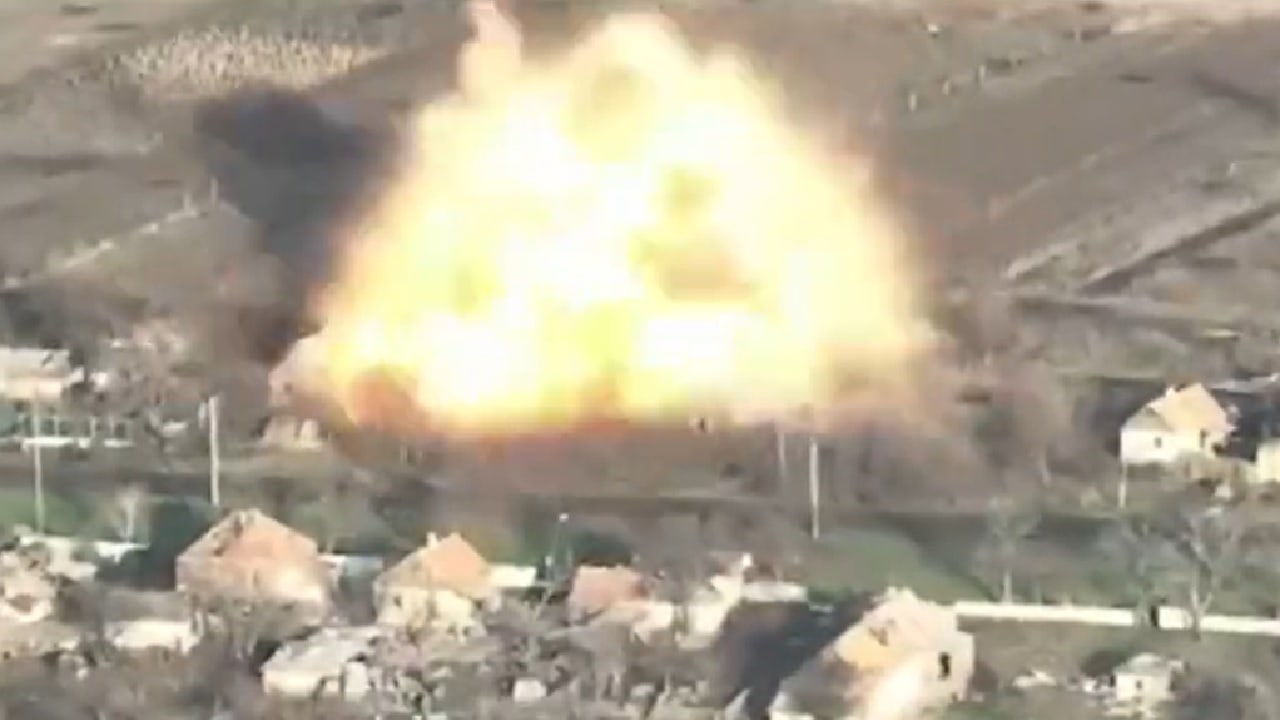Russian President Vladimir Putin is not surprisingly using escalatory language in response to reports that Ukraine may soon be receiving highly-lethal, anti-armor-depleted uranium shells.
Putin Practices “Escalate to Win”
Published comments indicate that Putin is at least talking as though he could use this as a justification for some kind of use of nuclear weapons. This kind of rhetoric from Putin, however, is not surprising as it aligns with the well-known Russian “escalate to win” nuclear posture.
The possibility of Depleted Uranium (DU) rounds going to Ukraine was mentioned recently in the British House of Lords. A junior UK defense minister quoted in the New York Times newspaper said the UK would supply “armor-piercing rounds which contain depleted uranium” to Ukraine with its gift of 14 Challenger 2 tanks because they are deemed “highly effective in defeating modern tanks and armoured vehicles.”
Putin is also quoted in the Guardian article, saying “If all this happens, Russia will have to respond accordingly, given that the west collectively is already beginning to use weapons with a nuclear component.”
James Cleverly, Britain’s foreign secretary responded quickly to Putin’s suggestion regarding “nuclear components,” telling reporters that the UK’s decision to send depleted uranium was “no nuclear escalation,” adding, “The only country in the world that is talking about nuclear issues is Russia.”
UK and West Rebuff Remarks of Escalation
Referring to Putin’s remarks as “hyperbole” might even be giving the Kremlin more credit than needed, as there is little to no actual evidence of harm caused by the use of depleted uranium.
Depleted Uranium shells were created by the U.S. and coalition forces using roughly 300 metric tons of depleted uranium in Iraq and about 10 metric tons in Kosovo, according to a NATO report on the use of depleted uranium.
Its use in combat has been the source of considerable debate and controversy, yet depleted uranium has been proven extremely effective against enemy tanks as an anti-armor weapon.
Depleted Uranium on Soldiers
There is some established risk associated with the use of depleted uranium, according to the NATO paper, which explained that soldiers in tanks hit by depleted uranium rounds and survive may experience “reversible, short-term effects on the Kidneys.”
There is less clarity when it comes to long-term effects upon those injured by depleted uranium fragments. However, there has thus far been no evidence of negative effects found with the entire group of roughly 30 members of the group tested. There is a similar lack of certainty when it comes to the impact on soldiers exposed to depleted uranium elements in friendly fire incidents.
“Medical examinations of a group of about 100 soldiers exposed to DU aerosols in their own tanks from friendly fire incidents during the Gulf War, have not discovered any health damages so far that could be attributed to DU,” the NATO report states.
Kris Osborn is the Military Affairs Editor of 19FortyFive and President of Warrior Maven – Center for Military Modernization. Osborn previously served at the Pentagon as a Highly Qualified Expert with the Office of the Assistant Secretary of the Army—Acquisition, Logistics & Technology. Osborn has also worked as an anchor and on-air military specialist at national TV networks. He has appeared as a guest military expert on Fox News, MSNBC, The Military Channel, and The History Channel. He also has a Masters Degree in Comparative Literature from Columbia University.

